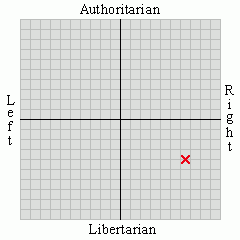It appears that Yasmin Alibhai-Brown has difficulty conceiving of the idea of freedom of speech.
Ms Alibhai-Brown entitles her piece “Freedom of speech can’t be unlimited”, and on one level she is right. The classic example is of course that it does not include the freedom to shout “fire” in a crowded theatre. Speech that directly causes harm, which would also include incitement to violence, can indeed be limited.
However that is not what Ms Alibhai-Brown means. She discusses the case of a man who was prosecuted for writing a completely fictional account of a violent, sexual incident towards women. No harm was done to anyone in the writing of that piece. Of course just to write that last sentence looks like a piece of weak satire. The story was pornographic, but that does not mean it harmed anyone. Recent evidence contradicts the baseless assumption that pornography increases the incidence of rape, in fact rape has tended to fall with increased availability of pornography. Therefore if anything this story is likely to reduce violence against women, it certainly has not been shown to be a threat.
Now I will be the first to agree that such a story is unpleasant, deeply unpleasant in fact. However I also know that there are people who gain sexual pleasure out of things that I find deeply unpleasant. Having met some of these, I found them perfectly decent people, who would be horrified by the idea that anyone would be genuinely hurt by their peccadilloes. I suppose others might not be so squeamish, but then I have known some people who were perfectly straight sexually but quite willing to spread mayhem and hurt, that is not confined to any one sexual identity. So overall I can see no prima facie case for censorship, yet this is Alibhai-Brown's first choice to censor, and she lets the case stand on its own, as if it is obvious and undeniable. That should show the danger of censorship, that it relies on opinion, usually the opinion of people who have little doubt they are right.
Ms Alibhai-Brown identifies some of the genuine, justified limits to freedom, “We accept libel and defamation laws … national security injunctions and establishment secrets …” which of course is justified by the direct harm that could otherwise result.
However she adds, with no apparent justification, “… and underpinning all that is a general understanding of what would be inappropriate and hateful if expressed in public”. There is no such general understanding, and neither should there be. Any such understanding would, necessarily, be a matter of opinion and politics, and give power to those who decide what can or cannot be said.
At various times in the piece Ms Alibhai-Brown heads off at right angles to her own thesis. Libel is already against the law, and in fact UK libel laws are often considered overly strict. The cases given in the piece are already covered by current laws.
The fact that Ms Alibhai-Brown herself wrote something hateful on the internet, and even now gets approached by people taking her to task for it is hardly an excuse for censorship. She does not deny that she said of Iraq “…there have been times when I have wanted more chaos, more shocks, more disorder to teach our side a lesson…”, she just wants to shut up the bloggers who write about it, as it is causing her discomfort.
Freedom of speech does not just include the freedom to say what we don’t want to hear. It is that freedom. The freedom to say nice and fluffy things is trivial. It is only when there are people who don’t want something said that such freedom becomes relevant in any way. I don’t think Yasmin Alibhai-Brown can conceive of that freedom.
Hat tip Harry’s Place.
[Update: slight clarification]
[Further Update: A slightly different angle in my piece on Voice of the Resistance]




0 comments:
Post a Comment